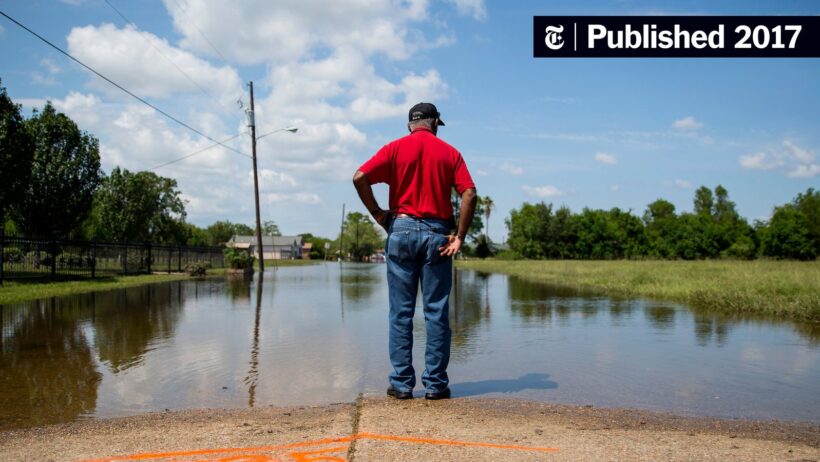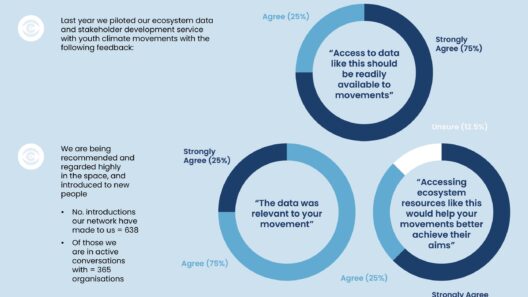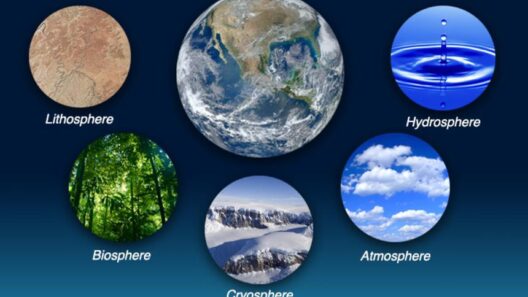Climate change is often dismissed as a trivial issue, overshadowed by more immediate concerns such as economic stability, political strife, and social justice. This perception, however, is misleading and undersells the urgency of addressing one of the most pressing challenges of our time. Understanding the intricate web of factors that contribute to this misapprehension is essential for fostering a comprehensive and nuanced dialogue about climate change.
Our behavior, as individuals and as a society, influences the climate debate significantly. Personal priorities often eclipse global concerns, making it easy to overlook the long-term ramifications of inaction. The deeply ingrained human inclination to focus on the present leads many to see climate change as a distant threat rather than an imminent crisis. This temporal myopia creates a facade of unimportance surrounding climate change, leading to a troubling complacency.
To counteract this narrative, it is essential to illuminate the realities of climate change, the psychological barriers to recognizing its significance, and the potential repercussions of inaction.
The Disconnect: Climate Change as an Abstract Concept
Climate change is frequently perceived as a nebulous concept, a complex issue that appears remote and disconnected from daily life. This abstraction is exacerbated by scientific jargon and long-term predictions that seem far removed from immediate experience. For many, the scientific consensus on climate change feels too complex to digest, resulting in disinterest or an inclination to dismiss its relevance.
Moreover, the impacts of climate change are often portrayed in broad strokes—rising sea levels, escalating temperatures, and extreme weather events. While these are critical, they can feel impersonal and distant. Without tangible connections to individual lives, it becomes easy for people to overlook the consequences of climate inaction. Instead, framing climate change in a manner that emphasizes personal stories, local impacts, and relatable scenarios can foster a deeper understanding and recognition of its importance.
The Psychological Barrier: Present Bias and Cognitive Dissonance
Human psychology plays a substantial role in the perception of climate change’s significance. Present bias—our tendency to prioritize immediate rewards at the expense of long-term goals—creates a substantial barrier to addressing climate change. For many, the allure of economic growth, consumerism, and convenience overshadows the far-reaching implications of a warming planet. This irrational prioritization leads to a collective reluctance to make sacrifices for the planet’s long-term health.
Cognitive dissonance also complicates the situation. When confronted with the stark realities of climate change, individuals may experience discomfort, leading them to downplay or deny the issue. Rationalizations such as “it’s not my fault” or “there’s nothing I can do” become prevalent as people grapple with the overwhelming nature of the problem. This defensive behavior can create a vicious cycle, wherein inaction further entrenches the perception of climate change as unimportant.
Addressing these psychological barriers requires empathy, awareness, and education. Shifting conversations from abstract data to personal, relatable stories can instigate a sense of urgency and personal responsibility. Engaging individuals in community-based initiatives to mitigate climate change can also cultivate a sense of ownership and investment in the issue, dispelling notions of unimportance.
Economic Delusions: Profit over Planet
The global economy often positions short-term financial gain above environmental stability, contributing to the belief that climate change is unimportant. Industries reliant on fossil fuels and unsustainable practices maintain a stronghold, lobbying against climate policies that threaten their profits. This corporate influence cultivates a culture where environmental considerations are secondary to economic growth, perpetuating the notion that climate change is not a priority.
Furthermore, the media often sensationalizes economic downturns without adequately addressing the long-term economic consequences of climate inaction. Flooding, droughts, and extreme weather events carry staggering costs, yet discussions of these economic implications often fall short. By redirecting the conversation around climate change to include its economic ramifications, a compelling case can be made for prioritizing sustainable practices and policies.
Transitioning away from viewing climate change as an abstract or unimportant issue necessitates a multifaceted approach. Education and awareness campaigns that highlight local impacts, emotional narratives, and economic realities can align public perception with the urgent need for action. Moreover, fostering a dialogue that emphasizes collective responsibility and accountability strengthens the call for change.
Conclusion: The Imperative for Action
In summation, the erroneous perception of climate change as unimportant is underpinned by a combination of psychological barriers, economic interests, and the abstract nature of the issue itself. Addressing this misperception requires a concerted effort to reframe the discourse around climate change, making it tangible and relatable to everyday lives. It is essential to elucidate the dire consequences of inaction and to cultivate a culture of accountability and responsibility.
By changing the narrative surrounding climate change, we can galvanize action and foster a sense of urgency. Only then can we truly understand the importance of this challenge and rally the collective will needed to confront it. The stakes are too high, and the time for action is now.








